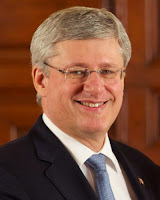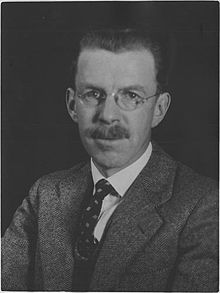Has former Canadian Prime Minister Stephen Harper been channeling his inner Donald Trump? Is that why he wants his party to embrace a Hungarian quasi dictator who is viewed favourably by the former U.S. president and his Republican supporters.
 |
| Stephen Harper |
Harper has called for closer ties between the Conservative Party of Canada and
Viktor Orbán, Hungary's authoritarian leader. That should give you a preview of what to expect from the Conservative Party should it form the government under its current leader Pierre Pollievre (Harper supported Pollievre for the Conservative leadership over his more moderate opponent, Jean Charest.).Here is what you need to know about Hungary's authoritarian leader Viktor Orbán:
 |
| Viktor Orbán |
He has extolled the value of racial purity, is vehemently anti-immigration, has cultivated close ties with Russia's Vladimir Putin and was a speaker at this week's Conservative Action Conference, known as CPAC, in Dallas,
Hungarian Prime Minister Viktor Orbán, 59, is widely criticized around the world for systematically dismantling his country's nascent democracy during his 12 years in power - but that hasn't stopped him from emerging as a darling of many on the right in America.
- Patrick Smith, NBC News Digital, August 6, 2022
A day after discussing migration with European Commission President Ursula von der Leyven in Brussels, Orbán made the following statement : "We don't think a mixture of Muslim and Christian society could be a peaceful one and could provide security and a good life for people." Has Orbán ever read the parable of the Good Samaritan?
Numerous political scientists and watchdogs consider Hungary to have experienced a reversal of democratic rights during Viktor Orbán's time in power. He has curtailed press freedom, eroded judicial independence and undermined multiparty democracy. Furthermore, Orbán has criticized the polices of the European Union while accepting its financial support. He has been accused of funneling that money to allies and family.
You should also know that between 2010 and 2020, Hungary fell 69 places in the Press Freedom Index and lost 11 places in the Democratic Index (The Economist). In addition, Freedom House has downgraded Hungary's democratic rating from "free to "partly free." In 2003, The V-Dem Democracy indices ranked Hungary as the 96th electoral democracy in the world.
Orbán has characterized his policies as "illiberal Christian democracy." He obviously has a skewed view of Christianity and democracy. I shudder to think of the Conservative Party of Canada's foreign policy should Pollievre become prime minister. After all, Stephen Harper supported the 2003 U.S. invasion of Iraq. In 2008, Harper grudgingly admitted that he was wrong about Iraq, after being goaded by then-Bloc Québécois leader Gilles Duceppe in a leaders' debate during the federal election campaign that year.
Thankfully, Jean Chrétien was PM in 2003 and he refused to send Canadian troops to aid the Americans in Iraq. If Harper had been prime minister in 2003, Canada would have participated in the disastrous invasion. At least Harper admitted that he made a mistake, which is more than once can say for Trump - but that's setting the bar extremely low. Harper's support of Orbán demonstrates his continued lack of judgement in foreign affairs.
- Joanne















